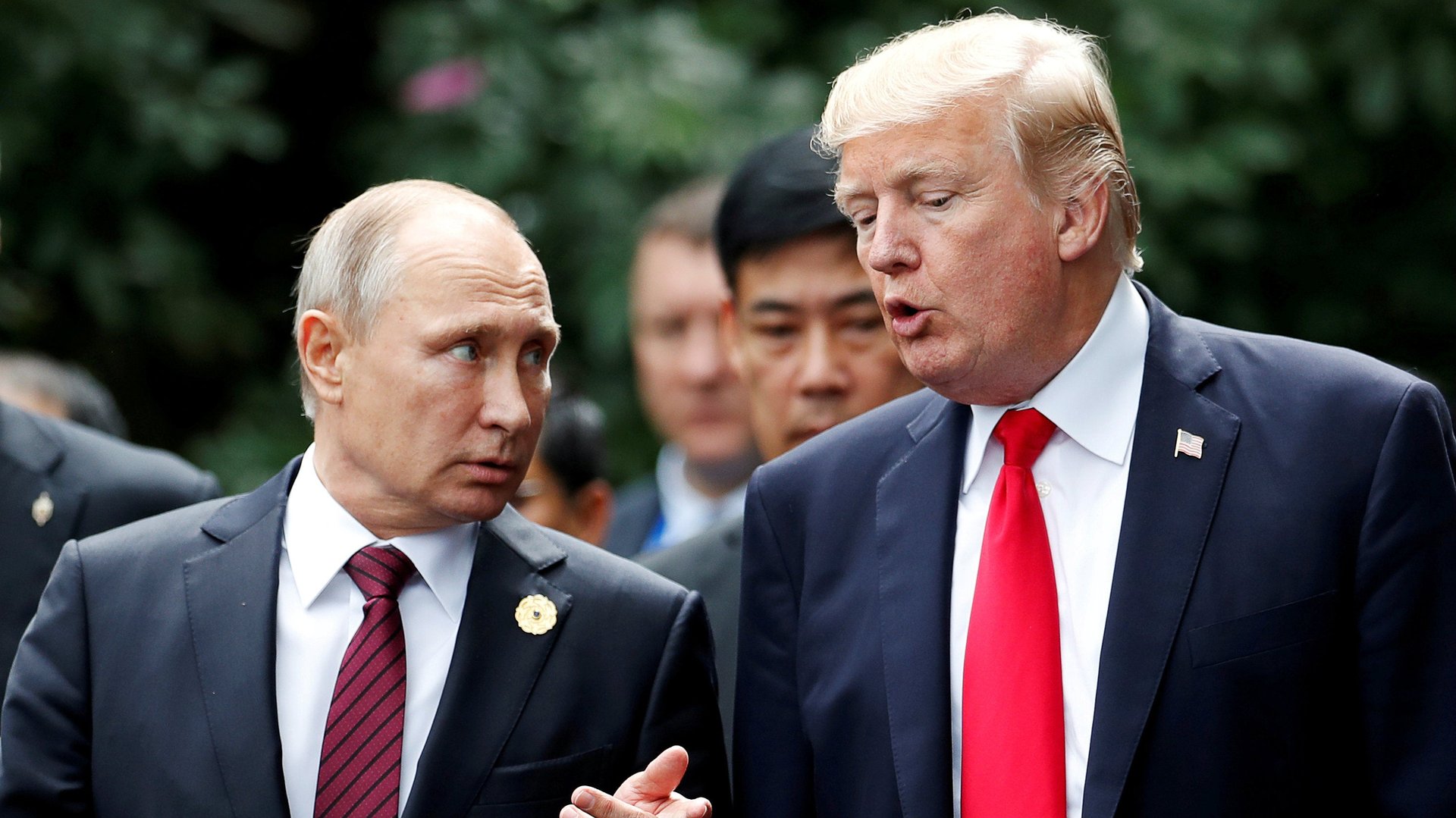In their first-ever summit, Trump meets Putin with “low expectations” and no agenda
President Donald Trump will cap off a whirlwind few days in Europe today (July 16) by meeting Russian president Vladimir Putin. He’ll likely do so by upending more norms.


President Donald Trump will cap off a whirlwind few days in Europe today (July 16) by meeting Russian president Vladimir Putin. He’ll likely do so by upending more norms.
Partly because Trump sees a good meeting as the goal of his diplomacy, there is no formal agenda, and neither side has agreed on the “deliverables” that are typically negotiated in advance of such meetings. For his part, Trump said that he has “low expectations” ahead of the Helsinki meeting—the first formal summit between the two leaders.
The presidents will meet one-on-one, aside from their interpreters. Putin is well-practiced at this type of meeting: Trump is his fourth US counterpart, and the Russian leader is known for exactly the kind of preparation that Trump is not known for.
Putin will also likely have very clear objectives, one of which has already been achieved—even having a private meeting with Trump will boost his stature at home. He’s already riding high at home, following a successful job of hosting the FIFA World Cup.
Trump said on Saturday that he will raise last week’s federal indictment of 12 Russian intelligence agents—an incident that has prompted calls for Trump to cancel the meeting. He will also speak about Russia’s meddling in the 2016 US election—even though he reportedly told officials he already knows Putin will once again deny any involvement.
Trump has said he will also raise the issue of Syria. The US is increasingly worried about the potential for a new conflict in Syria between Israel and Iran or Iran-backed forces—but any resolution is unlikely, considering Russia’s recent $50 billion investment in Iran’s oil and gas sectors. The same goes for talks about the annexation of Crimea.
He has also said that nuclear proliferation will come up, and Russia expert Stephen Sestanovich has said it could be an “easy win” for Trump to come away with an agreement to start negotiating a new arms control treaty, or even an extension to the New Start treaty, which expires in 2021.